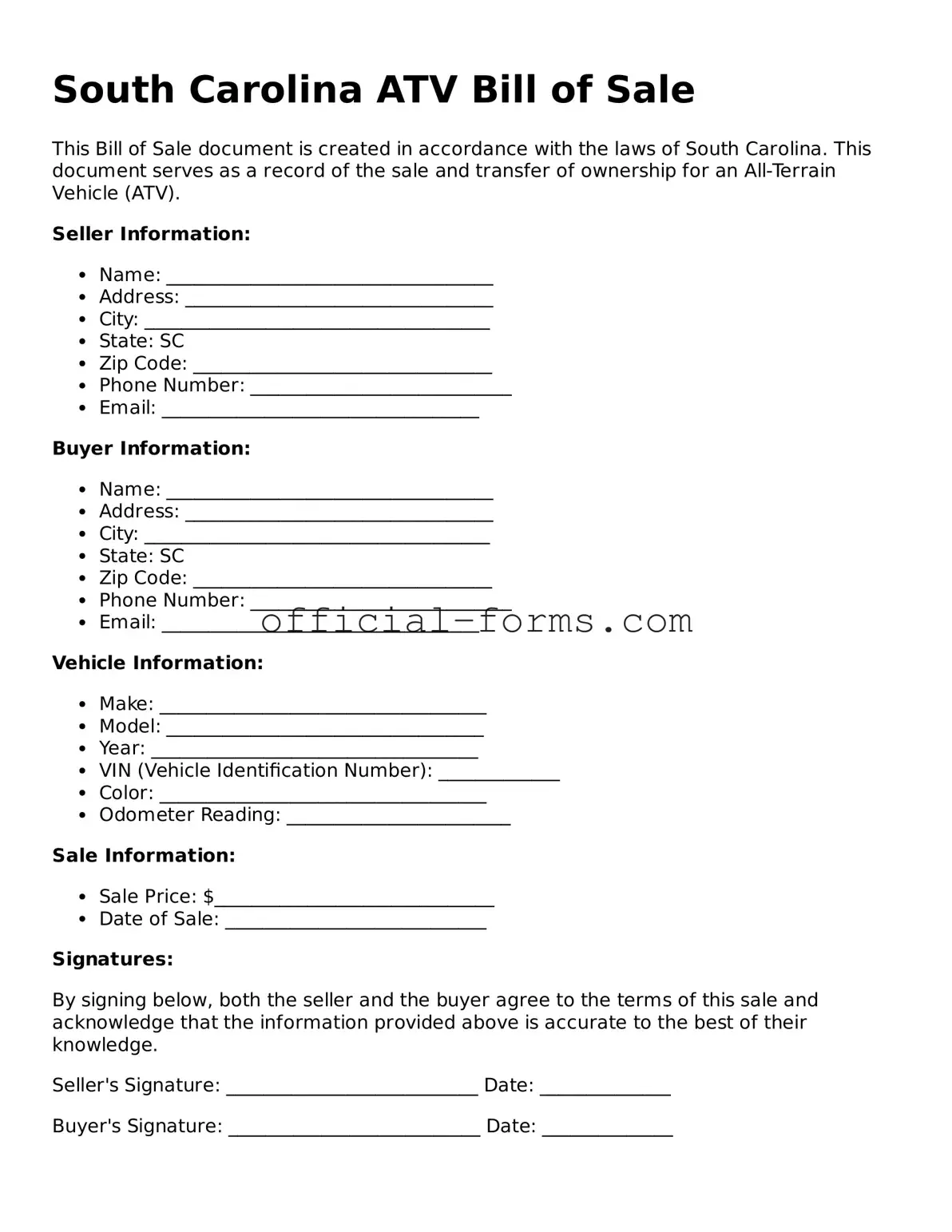Official South Carolina ATV Bill of Sale Document
The South Carolina ATV Bill of Sale form serves as a crucial document in the transfer of ownership for all-terrain vehicles in the state. This form provides essential details about the transaction, including buyer and seller information, vehicle identification, and purchase price. Understanding its importance can help ensure a smooth transfer process and protect both parties involved.
Open My ATV Bill of Sale Now

Official South Carolina ATV Bill of Sale Document
Open My ATV Bill of Sale Now
Don’t leave your form incomplete
Finish ATV Bill of Sale online quickly from start to download.
Open My ATV Bill of Sale Now
or
➤ PDF
